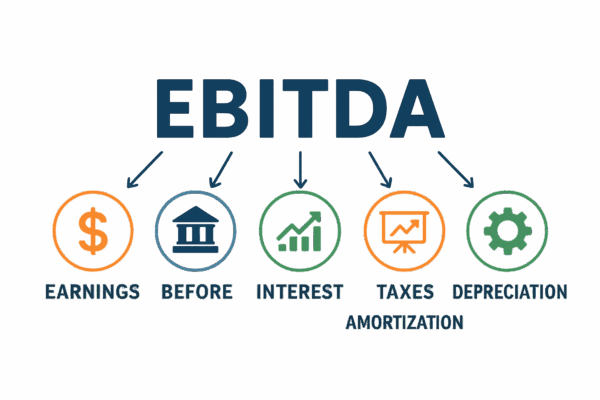What is EBITDA?
EBITDA stands for Earnings Before Interest, Taxes, Depreciation, and Amortization. It is a financial metric used to evaluate a company’s profitability from its core operations, before accounting for financing costs, tax structures, and non-cash accounting expenses.
Why Use EBITDA?
- It removes the effects of financing and accounting decisions.
- Helps compare profitability between companies and industries.
- Useful for valuing businesses and assessing operating performance.
How to Calculate EBITDA
You can calculate EBITDA using one of the following formulas:
Formula 1:
EBITDA = Net Income + Interest + Taxes + Depreciation + Amortization
Formula 2:
EBITDA = Operating Income (EBIT) + Depreciation + Amortization
Example Calculation
Suppose a company has the following financial data:
- Net Income: $100,000
- Interest: $20,000
- Taxes: $30,000
- Depreciation: $15,000
- Amortization: $10,000
Using Formula 1:
EBITDA = 100,000 + 20,000 + 30,000 + 15,000 + 10,000 = $175,000
Conclusion
EBITDA is a helpful metric for understanding a company’s true operating performance. However, it should not be used alone—it’s important to consider other metrics and context when evaluating a business.



